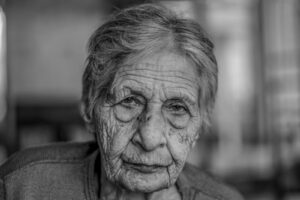Family and social support may influence caregiver stress and depression
A new study from Weill Cornell Medicine investigators shows that cultural values and social support may influence a caregiver’s burden, self-efficacy and depressive symptoms. These findings suggest interventions aimed at buffering the negative effects of care-related stress should reinforce the importance of social connections.
In a study reported in the Journals of Gerontology: Series B, a team led by first author Dr Francesca Falzarano, a postdoctoral fellow, and senior author Dr Sara J. Czaja, professor of gerontology in medicine in the Division of Geriatrics and Palliative Medicine at Weill Cornell Medicine, examined racial and ethnic differences in familism — a cultural value that centres around a sense of collectivism in the family — and social support to better understand cross-cultural differences in caregiving outcomes.
‘Familism is a cultural justification to provide care, and there are three factors: family obligations, or how does your culture and your family structure influence your feelings of obligation to provide care? Perceived support, or what’s a person’s perception of support that they receive from their family. And then family as referents, which is being exposed to a family member providing care and using that as a model,’ Dr Falzarano said.

‘The ageing population, as well as the caregiving population, are becoming much more ethnically diverse in the United States,’ Dr Czaja added. ‘We know that there are cultural differences in ideas about caregiving and it’s important to understand those differences in order to develop efficacious interventions.’
The Weill Cornell researchers hypothesised that Hispanic and Black people would exhibit higher levels of familism and that familism would act as a buffer and mitigate care-related strain in these caregivers.
Their team collected data from 243 caregivers whose loved ones had Alzheimer’s disease or other related dementias (ADRD) — a population of caregivers that tend to have higher degrees of feeling burdened and stressed. The caregivers, who ranged in age from 20 to 95, lived in the greater Miami region and were participants in the Caring for the Caregiver Network study, which examined a culturally-tailored, technology-based psychosocial intervention.
Of the 243 participants, 55 were Black, 79 were white, and 109 were Hispanic. Researchers found that the Black and Hispanic participants reported higher familism compared with white participants. Black participants also reported higher levels of social support, which in turn predicted lower burden and depressive symptoms when compared with white participants.
‘Our hypotheses were largely maintained, which really highlights the criticality of this topic,’ Dr Czaja said. ‘It’s vital for caregivers to know they’re not alone and they should not feel bad about needing or seeking support. And while family is important, we must also enhance support for individuals who do not have family. We must also define the term family broadly.’
The team also did an exploratory analysis with Hispanic participant acculturation, or assimilation to a new culture.
‘We didn’t know what we were going to find, but our results showed that the greater number of years a Hispanic person spends in the United States, the lower they score on the familism scale,’ Dr Falzarano said.
In the future, the Weill Cornell researchers also hope to expand their research to first-generation caregivers and members of other racial or ethnic groups.
‘Overall, our findings show that a one-size-fits-all approach to interventions is not efficacious,’ Dr. Czaja said.
Photo by Dario Valenzuela















